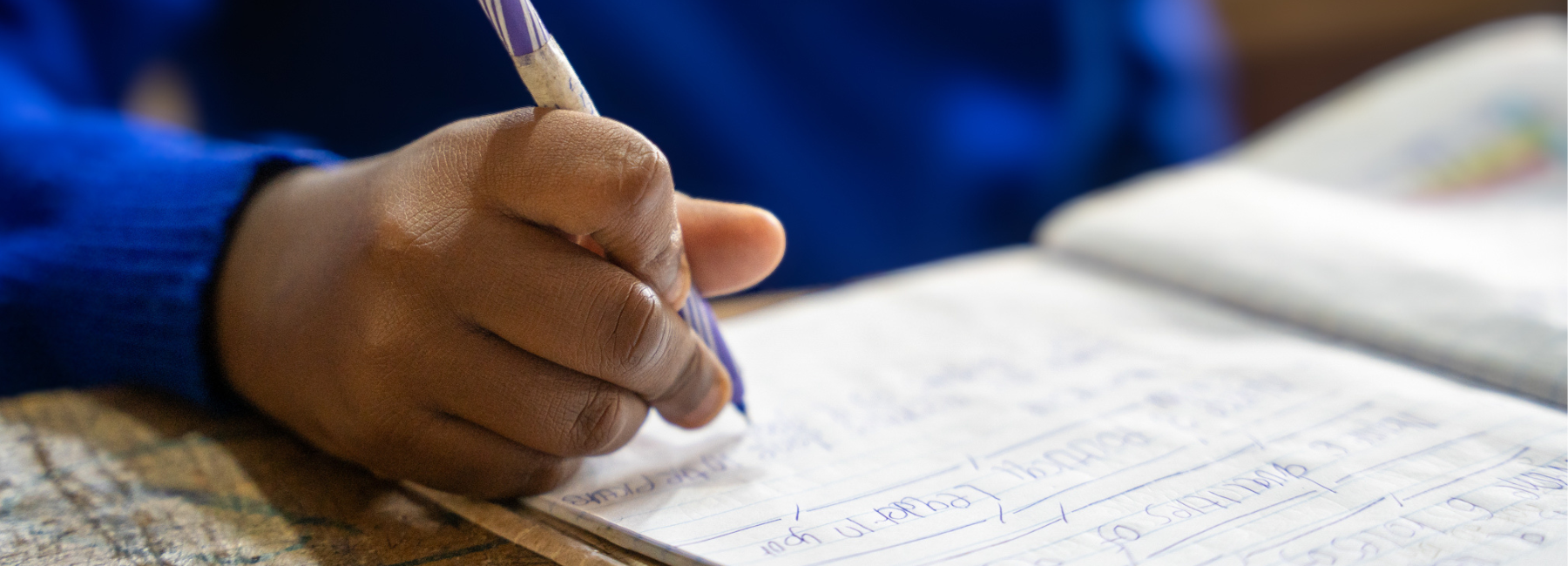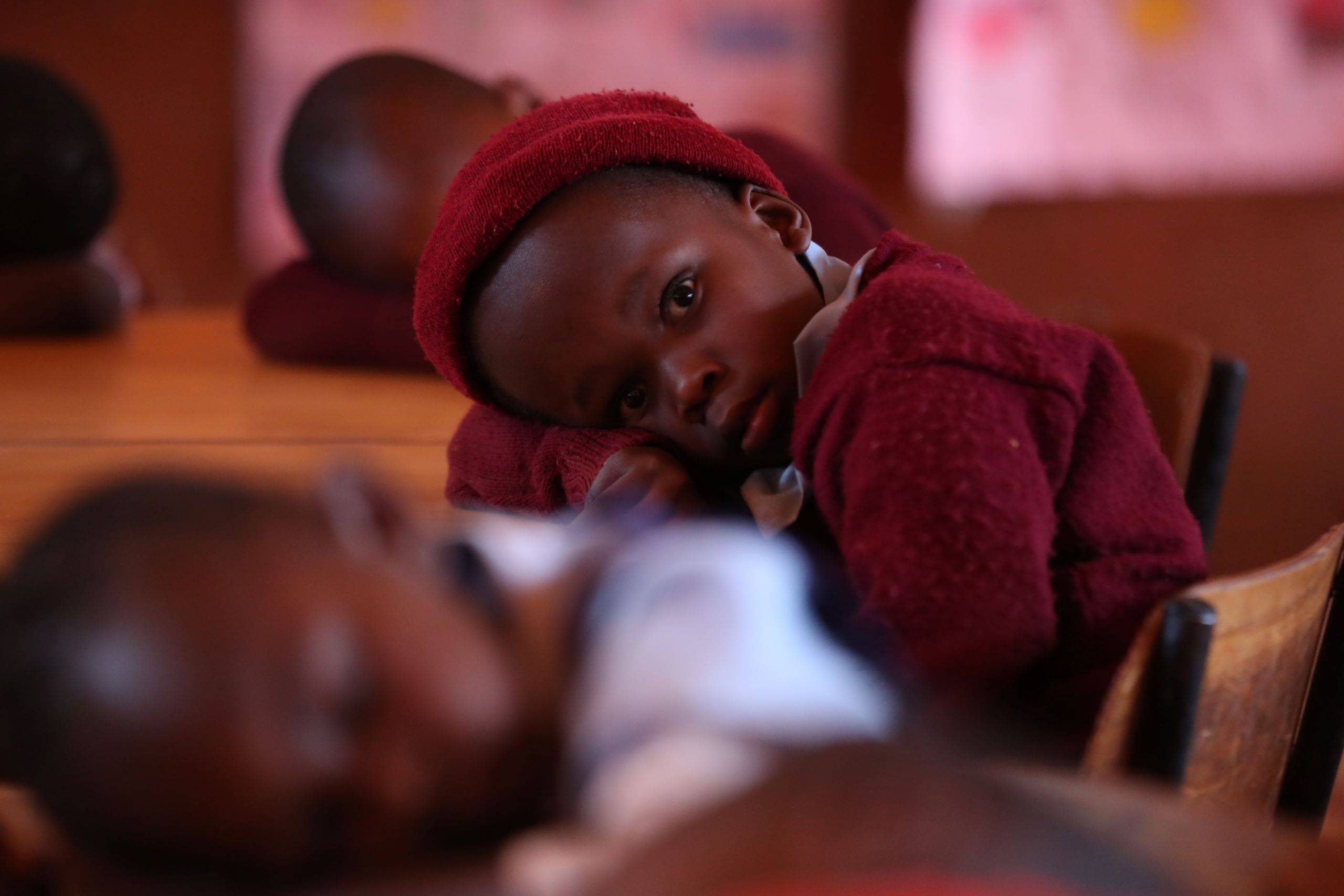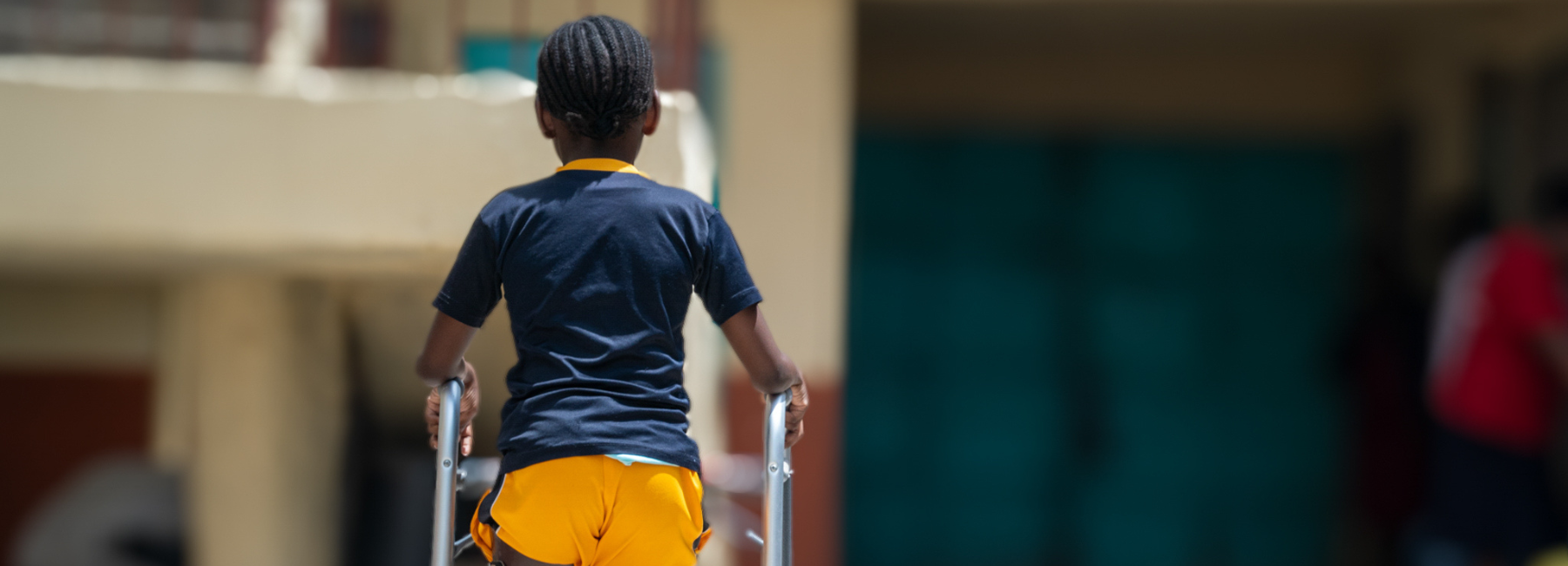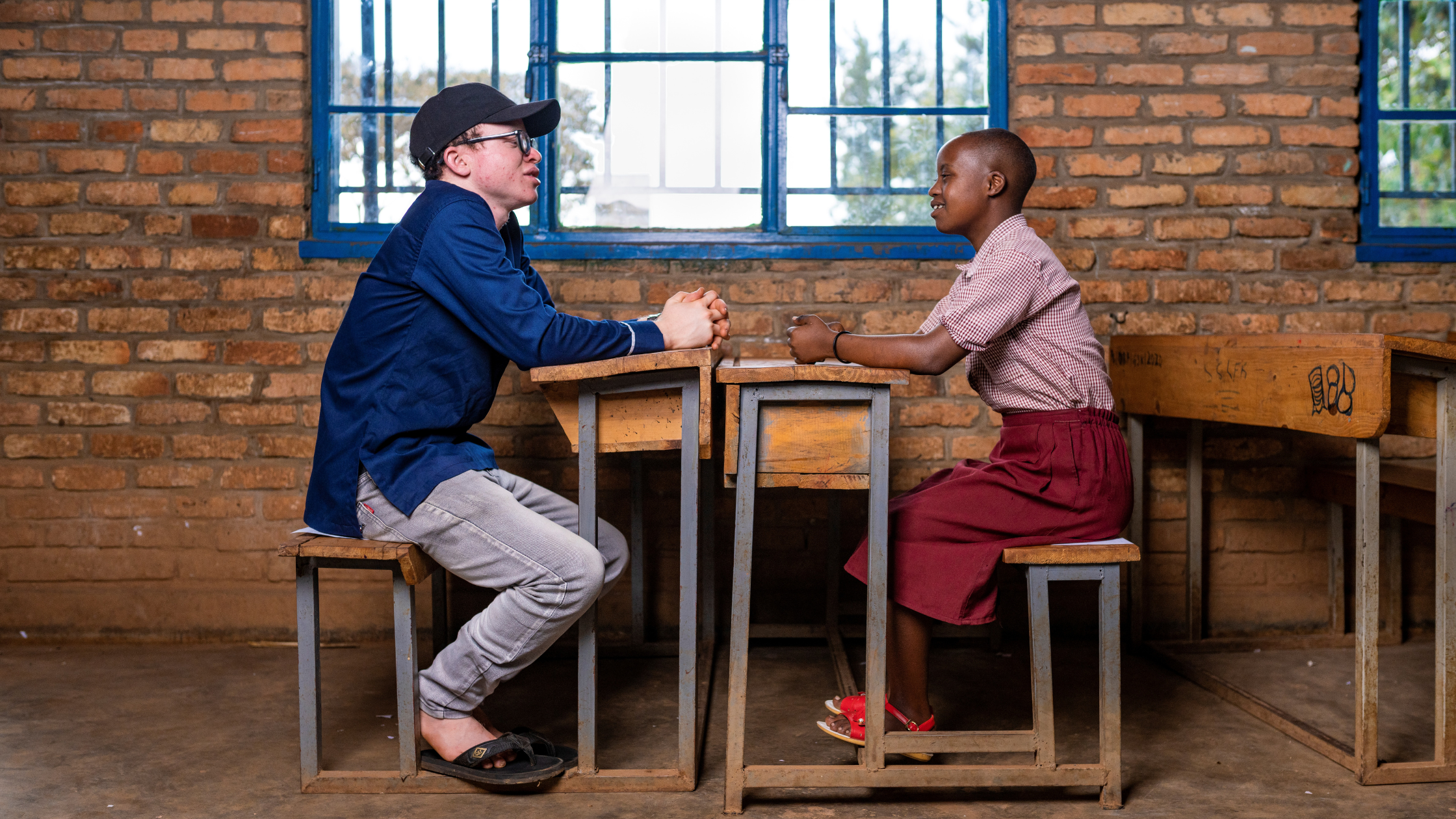Improving school enrolment through inclusive Early Childhood Education (ECE)
Children with disabilities often remain hidden, with those around them more likely to hold low expectations for their future. Getting them into early childhood settings and breaking down these negative stereotypes is vital to ensure they are able to thrive.
Having successfully opened 18 Community Learning Centres in partnership with Comic Relief, the past year has seen considerable progress in improving the school-readiness of children with disabilities through USDC’s community-led learning programme. The existing curriculum used in the centres was refined to ensure it was accessible for children with disabilities, and multiple trainings were delivered to the centre caregivers.
There are now 724 children enrolled across the 18 Centres, of which 20% are children with disabilities, far exceeding our expectations at the start of the project. As a community-led project, we have seen several instances where members of the community have donated time, materials and food to help ensure the successful running of the Centres. Awareness raising events have also ensured people in the community understand the importance of education for children with disabilities.
Abasi’s Story
Abasi is a four-year-old boy living in a village in northern Uganda. When Abasi was three weeks old, he became extremely unwell, and his health continued to deteriorate. He was referred to the general hospital for treatment and while there, he had several seizures. It wasn’t until much later that his parents realised that Abasi was unable sit upright or crawl, like other children the same age were able to do. They were extremely worried and unsure what was wrong.
When Abasi was three, his mother heard about the inclusive ECE project, where children with disabilities were being enrolled alongside children without disabilities in community-led programme. She expressed her interest and Abasi was immediately enrolled. Abasi received a formal medical assessment through the project, where he was diagnosed with cerebral palsy. Abasi’s parents received support through the project’s parent support group, as well as regular home visits from project staff. They learnt about basic physiotherapy exercises that they could do with Abasi at home to aid his development.
Now, Abasi is able to crawl and can stand upright when holding onto an object for support. He is doing well at the centre and enjoys playing with the other children. Abasi’s parents are extremely pleased and have a restored hope for his future. A future where he can continue to go to school and play an active role in society, just like other children with disabilities reached through the project.












